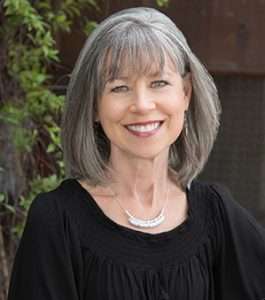
When you’re walking on the beach and come across an elaborately built sandcastle that took hours to make, what is your first thought after Wow? Too bad it will all wash away when the tide comes in. Some think they can avoid this fate by building beyond the tide line, but either way, its life is short-lived. Sandcastles do not last.
Similarly every time you go to a funeral it’s a healthy reminder of the temporary nature of life. Some people will accomplish great things in their lifetime, but like sandcastles, they will all wash away when death brings in the tide.
How should the certainty of death factor into the life we live today?
Psalm 49 stands alone in the book of Psalms—it’s like no other. The theme of this proverbial wisdom psalm is the certainty of death and the temporary nature of wealth and splendor.
It asks one question, followed by the answer, and gives one command, followed by the reason.
• The question and the answer, verses 5-9: “Why should I fear when evil days come, when wicked deceivers surround me—those who trust in their wealth and boast of their great riches? No man can redeem the life of another or give to God a ransom for him. The ransom for a life is costly, no payment is ever enough—that he should live on forever and not see decay.”
• The command and the reason, verses 16-17: “Do not be overawed when a man grows rich, when the splendor of his house increases; for he will take nothing with him when he dies, his splendor will not descend with him.”
This psalm addresses a problem prevalent in most of the world, for most of human history. The powerful wealthy oppress those who have neither power nor wealth. The rich rule over the poor and keep them pressed down with no way to get ahead.
When the United States was founded it was known as a place where you could be free from an oppressive government. And you were not locked into your social status. The American dream is that any person can work hard and get ahead.
But even today this is only partially true. Who are the influential people in positions of power? It’s not the middle class. It’s surely not the poor. It’s the wealthy.
The confident boasting of the wealthy is because they have a false sense of security and a perception of invincibility. But this psalm says, NOT SO FAST.
Wealth has critical limitations according to Psalm 49. Money can’t ransom a soul, and money can’t prevent death and decay. The power and prestige of wealth is over-inflated. You can’t take it with you.
Wealth in itself is not wrong. But wealth can tend to exaggerate your importance—in your own eyes and in the eyes of others. The Bible doesn’t condemn wealth, but the pompous attitude that often goes with it.
So what do we do with this psalm? There is one main point and two applications points.
One main point: death is certain—and you can’t take wealth or splendor with you.
Two application points:
• Don’t be intimidated by those with temporary wealth, and the power and prestige that comes with it.
• Don’t be overly impressed by those with fleeting splendor, and the influence and applause that comes with it.
Both these applications deal with our attitude not our actions. We’re not told what we should do but rather what attitude we should have. Why is that? Remember this is a wisdom psalm. Wisdom tells us to work on our attitude because our ATTITUDE will determine our ACTIONS.
If we view our years in this earthly kingdom as temporary, and
if we view any wealth and splendor we have as temporary,
we will not spend our life building sandcastles that are only temporary.
We will invest our lives in things that last.
We will use our money and influence for the eternal kingdom, that will not wash away when death brings in the tide.
I’d love to hear your thoughts.


Thank you for this reminder this morning–exactly what I needed!
Thank you, Janet. What an awesome surprise to get to share in some of your teaching and perspective on Psalm 49.
Hi Barbara, Our 6 week Psalm series started this week. I’ll be giving a wide variety of Psalms from different categories. I plan to blog about each one. There’s no end to what we can learn in the Psalms.